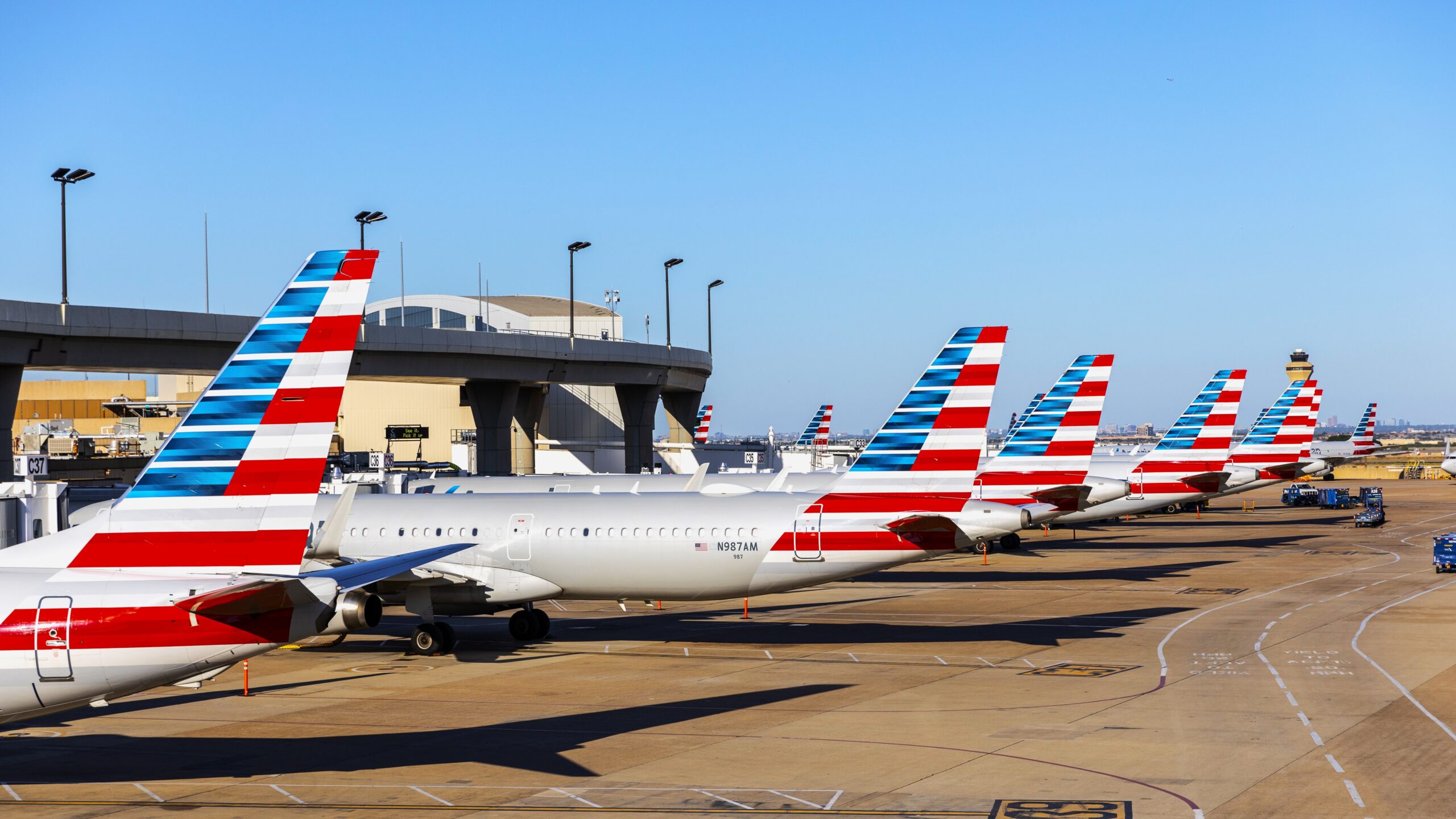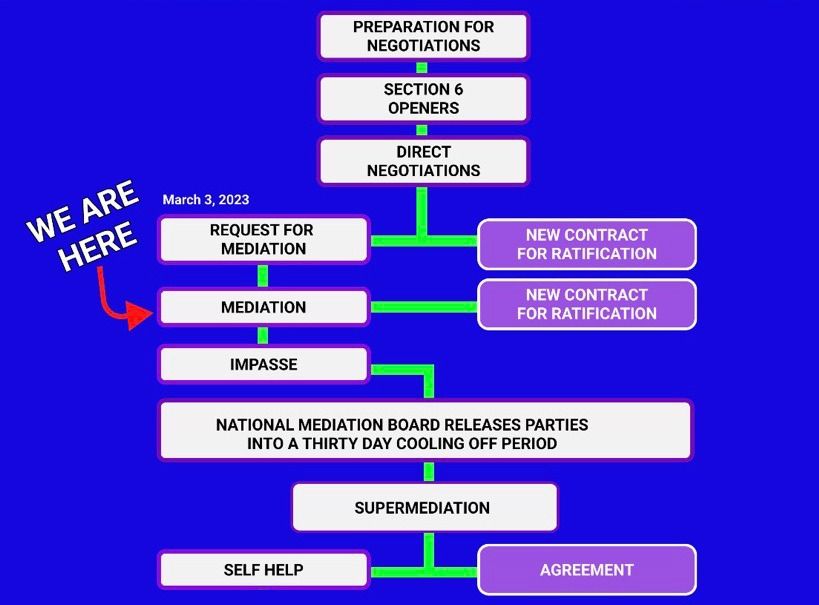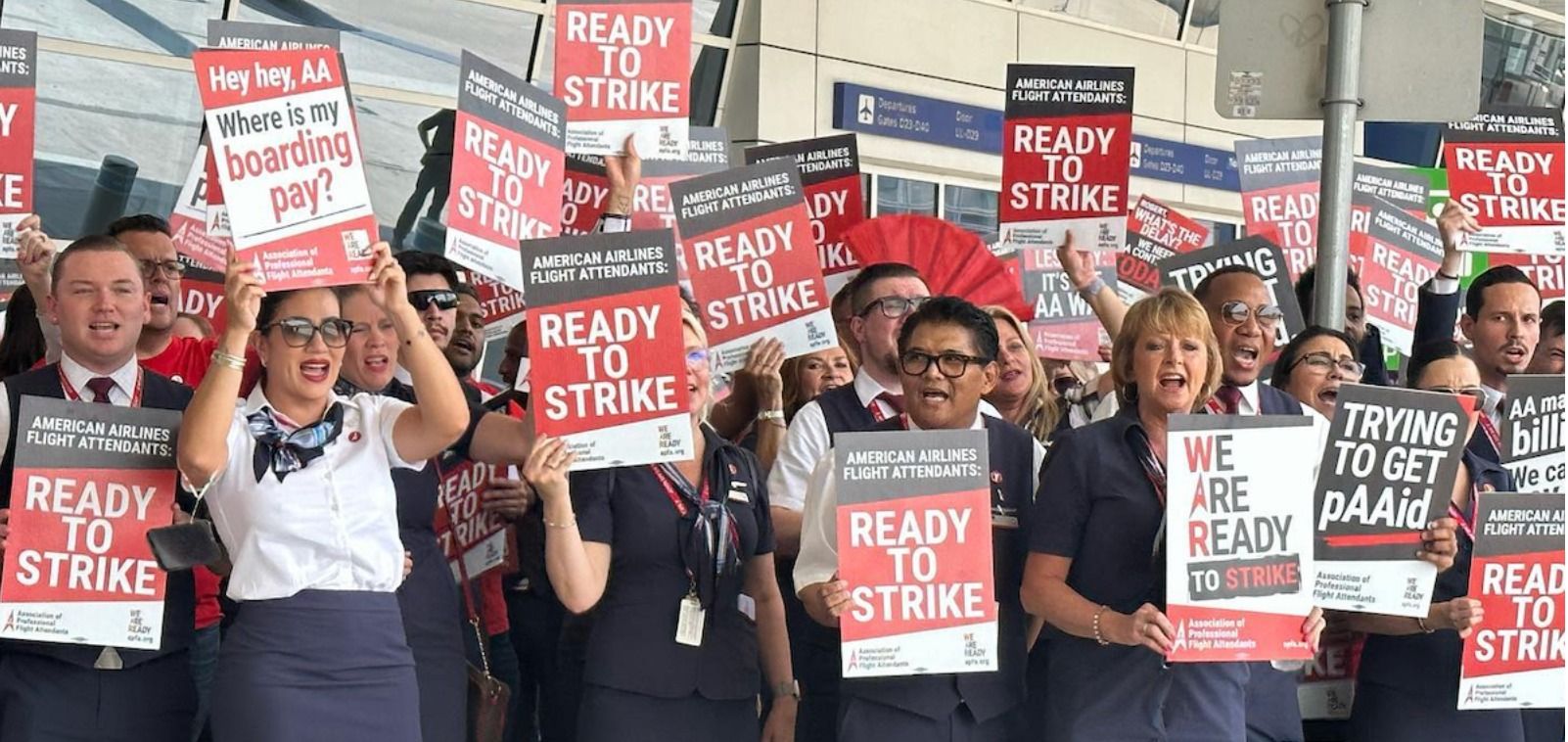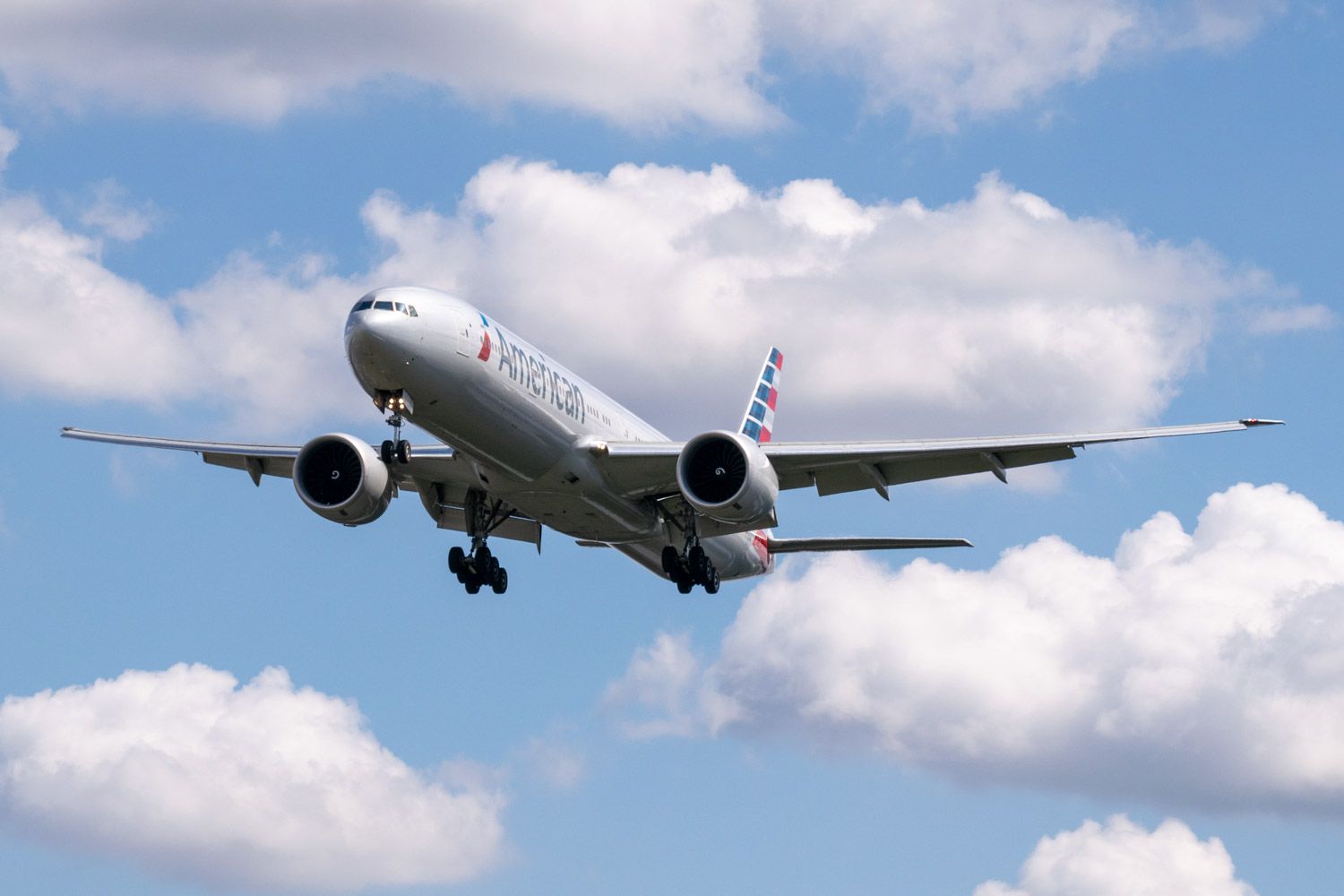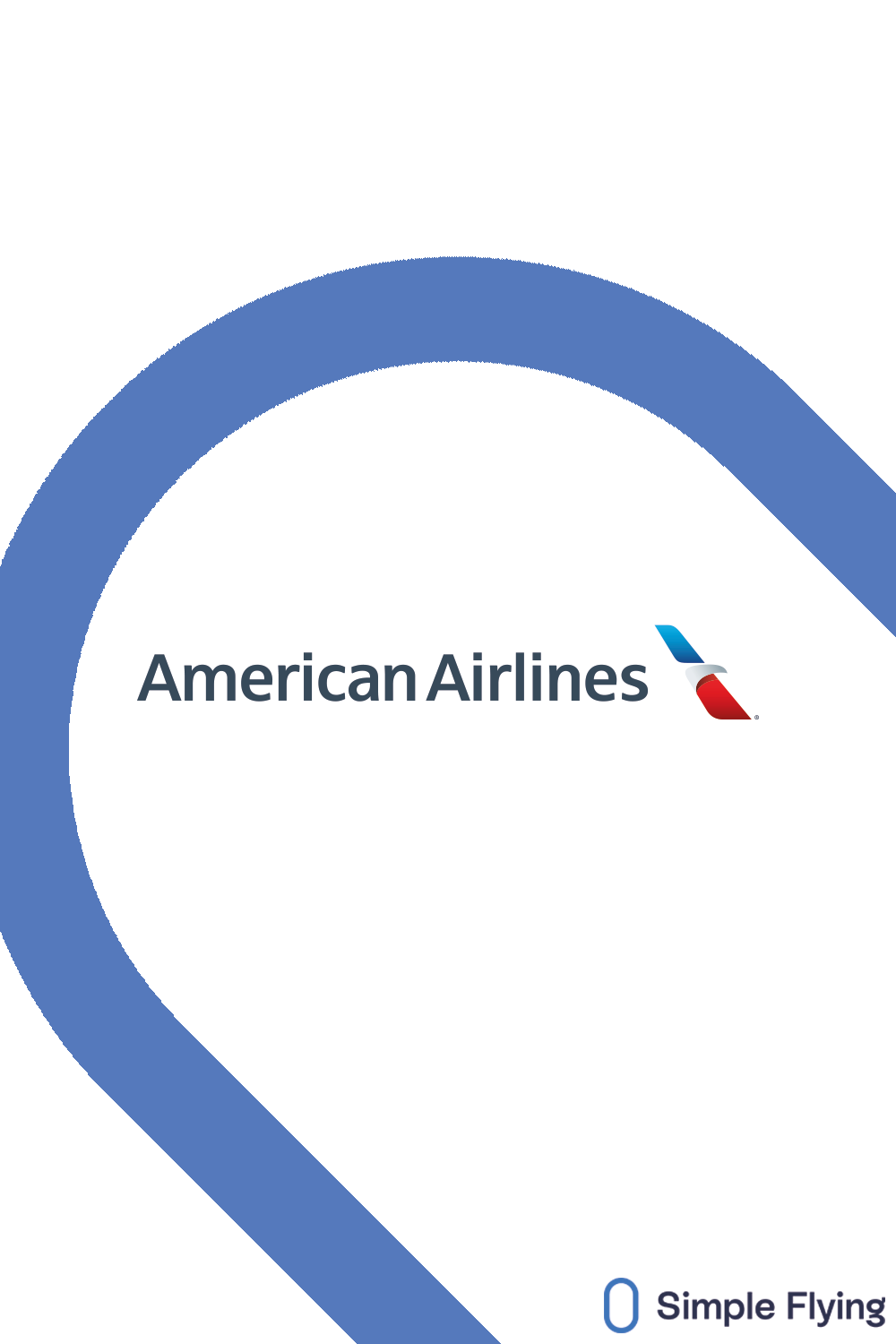Summary
- The Association of Professional Flight Attendants (APFA) has requested permission to strike after a 30-day cooling-off period.
- APFA is clear that the company’s economic framework is unacceptable and unwilling to arbitrate the contract, believing that a strike deadline is necessary to push for a settlement.
- The risk of a strike in late December or early 2024 is evident, although American Airlines’ denies this, and the National Mediation Board can respond to APFA’s request for a cooling-off period at any time.
In an important step, the Association of Professional Flight Attendants (APFA) representing American Airlines flight attendants have written to President Biden’s National Mediation Board seeking permission to strike after a 30-day cooling-off period. Although American Airlines public relations denies the risk of a holiday strike, the math alongside APFA statements clarifies an increasing chance of a late December or early 2024 strike.
“A right to improve our lives”
APFA, which had 93% of its members vote over 99% to authorize a strike, made public a negotiating deadline of November 17 to either improve terms or request to strike. As the National President of the Association of Professional Flight Attendants (APFA), Julie Hedrick explains in her letter to the National Mediation Board (NMB), which provides mediators under the Railway Labor Act,
The Company has staked out a firm position on economic matters, and APFA has been clear that the Company’s economic framework does not and will not work. No amount of future bargaining will change that, absent a release into a thirty-day cooling-off period. We have a right to improve our lives and working conditions by withholding our labor, and the employer should not be able to hide behind the belief that they will not face a release to further profit at our expense.
There is a specific process for US airline labor negotiations covered under the Railway Labor Act, and requesting an offer of arbitration and release from mediated discussions is crucial.
Graphic: Association of Professional Flight Attendants (APFA)
However, APFA Negotiating Update #40 makes clear,
Under the RLA, the Board proffers arbitration to both parties and when it is rejected, that releases the parties into a thirty-day cooling-off period. We, of course, have zero interest in arbitrating our contract and believe we need a strike deadline to force the company to settle this dispute.
Exchanging offers
Regarding pay, according to Dallas Morning News, APFA is asking for an immediate 35% raise and annual increases of 6% under a 3-year deal. The counter is 18%, including 11% to base pay and new boarding pay, followed by annual 2% increases. This is while the American Airlines CEO, according to an APFA spokesperson and the Dallas Morning News, recently landed a $2.75 million bonus and $8.25 million of stock after a base salary of $1.3 million.
Photo: Association of Professional Flight Attendants (APFA)
As APFA leaders shared with Simple Flying on September 14, other issues exist, such as finding food while on duty. As an APFA spokesperson shared with Simple Flying about the request,
A disruptive strike is the last thing anyone wants to see; this is about much more than pay. … Flight Attendants returned a 99.47% YES vote to authorize a strike, which clearly tells management at American that we are willing to put our livelihoods on the line to achieve the contract we’ve earned.
Resolving the impasse
When asked to comment on APFA’s request for release, American Airlines Corporate Communications shared with Simple Flying;
APFA’s assertion that we’ve reached an impasse is inaccurate. … For months now, we’ve had an industry-leading economic proposal on the table, and we continue to make progress on other items, including as recently as last week. We stand ready to continue working with APFA and with the support of the National Mediation Board to reach an agreement that our flight attendants have earned.
Photo: Tom Boon | Simple Flying
The APFA letter requesting release does voice hope of arriving at a tentative agreement in a thirty-day cooling-off period to break the impasse. However, APFA believes an impasse exists after almost five years of negotiation.
American Airlines rules out December strike risk, but the dates could line up
Although American Airlines communications make statements and refuse to correct such as, “There is no possibility for a strike over the Thanksgiving and December holiday travel periods,” – these statements could turn out to be wrong. The NMB can respond at any time with 35 days between now and Christmas plus or the 42 days between now and New Year’s Day. The mandatory cooling-off period before a strike is at 30 days, not 35 or 42.
Bottom line
The NMB can rule at any time on APFA’s request for a 30-day cooling-off period before APFA strike action. The resolve and frustration of APFA is clear. One only need listen to APFA President Julie Hendrick’s message to members after noting that Delta Air Lines flight attendants remain nonunionized:
Do you think APFA will get a contract or go on strike first? Please share with civility in the comments.
Sources: APFA Negotiation Update #40, APFA Letter to NMB, Dallas Morning News

